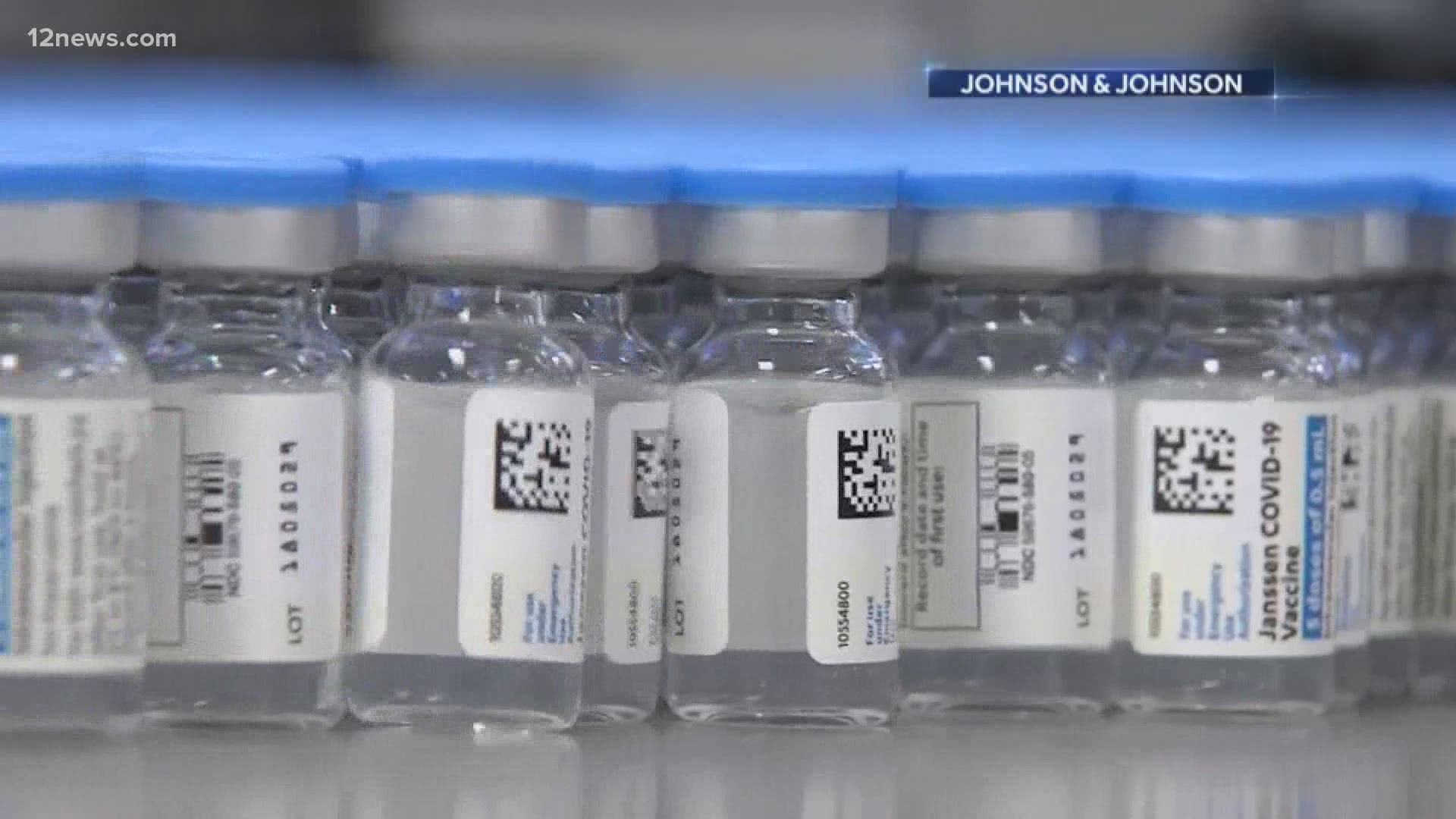PHOENIX — March 12 was the day Valley frontline worker Brittany Hoffman felt a pandemic weight lifted off her shoulders.
“At that point I knew I was not only taking precautions for myself to be healthier and safer during this pandemic, but I was helping my community as well,” said Hoffman.
That was the day she received her single-dose Johnson & Johnson vaccine along with other Valley Metro and frontline workers.
CDC, FDA recommend pausing in Johnson & Johnson vaccinations
Health care officials are investigating "extremely rare" reports of that specific kind of blood clot. There are six cases in the nearly 7 million vaccinations of the blood clots found in women 18 to 48.
Hoffman was shocked by the announcement.
“When you have 6.9 million cases that have been amazing and impeccable, to stop for 6 seems a little out of the ordinary,” said Hoffman.
If you already got the vaccine, here's what you need to know
The CDC says if you received a shot more than a month ago, your risk is very low. If you received the shot within the last few weeks, make sure to be aware of the following symptoms:
- Severe headache
- Abdominal pain
- Leg pain
- Shortness of breath
If you experience any of those symptoms, you should contact your health care provider and seek medical treatment.
J&J vaccine pause will not impact vaccine efforts, and should not affect confidence in the vaccines
"This announcement will not have a significant impact on our vaccination plan," said a White House COVID-19 response coordinator. The White House says the U.S. has secured enough Pfizer and Moderna doses for 300 million Americans.
“People should not be concerned or hesitant about to get those vaccines because many more doses have been given out for the Pfizer and Moderna," said Dr. Shad Marvasti, director of Public Health for the University of Arizona's College of Medicine in Phoenix.
"We've seen the safety record play out around the world. If there is hesitancy to get a vaccine, the ones available are safe and effective. It’s safer to get those than to get Covid.”
Marvasti applauds the decision as a good move while investigations take place.
“All the different characteristics who had this side effect will be examined to see if there will be commonalities to try and figure out what’s going on here.”
ADHS recommends pause on Johnson & Johnson COVID-19 vaccine
In Arizona, 226,000 doses of the J&J vaccine have been allocated to the state, 122,000 administered as CDC and FDA review the six cases of extremely rare blood clots.
“While the occurrence of this rare blood clot are extremely rare compared to the number of doses of the Johnson & Johnson vaccine administered nationwide, we are following the guidance of the CDC and FDA out of an abundance of caution and we will continue to work with our federal and statewide partners about the status of the vaccine,” said Dr. Cara Christ, ADHS director.
“The COVID-19 vaccine is safe and effective and is one of the best tools we have to reduce the spread of the disease in Arizona. I encourage everyone to get vaccinated against COVID-19.”
The state says providers may still administer the Johnson & Johnson vaccine if they feel it is clinically appropriate after a discussion with their patient.
Maricopa County Public Health recommends pause out of an abundance of caution
In a statement to 12 News, Maricopa County Public Health officials say, "the primary goal is to understand all of the information available and to ensure that the health care provider community is aware of the potential for this rare adverse event and can recognize and manage this unique type of blood clot."
The county will work closely with partners to keep as many scheduled vaccine events running as possible by substituting another available vaccine.
Although shocked, Hoffman agrees with the pause and encourages anyone with vaccine hesitations to ask their health care provider for direction.
“Your doctors are the ones that have that straight answer for you and are going to know your personal situation. So, if you do have hesitation, go to your doctor,” said Hoffman.

